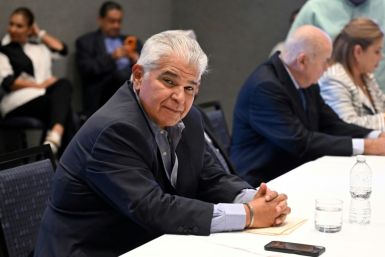Post-Traumatic Stress Disorder Linked With Premature Aging

Individuals with post-traumatic stress disorder, or PTSD, may pose a higher risk for premature aging, says a new study published in the American Journal of Geriatric Psychiatry. The past decade has seen an upsurge in number of people fighting with PTSD, and thus, has become a matter of grave public health concern. The most affected seem to be the military veterans returning from the battle-infested areas in the worlds, especially the Middle East.
PTSD is a psychological condition which might develop in a person after he has been exposed to one or more traumatic events, such as major stress, physical or sexual abuse, terrorism or any other form of threat on a person’s life. Such individual might showcase group of symptoms such as recurring flashbacks, avoidance or numbing of memories of the event, chronic depression, anger, insomnia, eating disorders and even substance abuse.
Recently, a new study carried out by the researchers at University of California, San Diego School of Medicine and Veterans Affairs San Diego Healthcare System has indicated that people with PTSD may also be at risk for accelerated aging or premature senescence. It is the first of its kind to link PTSD, a psychological disorder with no established genetic basis, which is caused by external, traumatic stress with long-term, systemic effects on a basic biological process such as ageing, says Dilip V. Jeste, professor of psychiatry at University of California, San Diego.
For their study, the research team from the University of California-San Diego School of Medicine and the Veterans Affairs San Diego Health System, including Jeste and his colleagues, conducted a comprehensive review of published empirical studies relevant to early ageing in PTSD, covering multiple databases going back to 2000.
According to the researchers, premature or accelerated aging pose no standard definition, and hence, they considered nonpsychiatric disorders that incorporate early aging, such as progeria syndrome and Down's syndrome, as their guide. After the analysis, the team was successful in identifying 64 studies that they deemed appropriate for investigating a possible link between PTSD and aging. These studies allowed them to assess the effect of PTSD on the biomarkers related to premature aging - such as telomere length as well as how it affects onset and prevalence of age-related medical conditions and overall mortality.
The researchers found that people suffering from PTSD had reduced telomere (caps on the end of each DNA strand that protect the chromosomes) length than the individuals without PTSD. Telomere length reduction with each cell replication is considered to be a marker of aging.
First author Dr. James B. Lohr, professor of psychiatry at UC-San Diego, adds, “The study findings do not speak to whether accelerated ageing is specific to PTSD, but they do argue the need to re-conceptualize PTSD as something more than a mental illness. Our findings warrant a deeper look at this phenomenon and a more integrated medical-psychiatric approach to their care.”
To contact the writer, email:ruchira.dhoke@gmail.com






